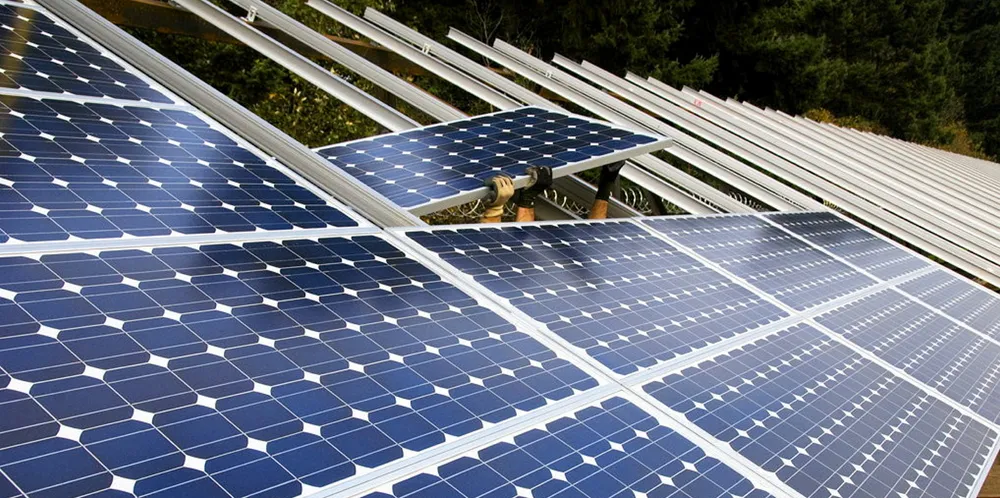Renewable energy projects taking ‘substantially’ longer to bring online
Governments must do more to protect projects from ‘macroeconomic shocks’ such as interest rate hikes, say researchers

The time it takes to commission green energy projects has shot up over the last two decades according to new research that also identified which countries are quickest – and which drag their feet – in rolling out renewables.
Almost 12,500 projects commissioned in 48 countries between 2005 and 2022 were analysed by researchers from the Climate Finance and Policy Group in Zurich in their paper.
The researchers focused on solar PV, onshore and offshore wind, biomass and run-of-river power plants, measuring from the time of permitting.
They found that “average commissioning times have increased substantially over the past two decades for all renewable energy technologies of all project sizes.”
Solar and onshore wind, “the two prominent renewable energy technologies,” saw increases in commissioning times of six months to around a year for OECD and non-OECD countries, respectively.
Offshore wind did show a “significant decline” in commissioning times, from 5.9 years in 2015–19 to four years in 2020–22 for projects over 100MW.
But this was “negated” by an increase in commissioning times in OECD Europe and non-OECD Asia Pacific countries (including China), the “two main markets” for the technology.
The UK, for example, has seen commissioning times for offshore wind projects jump from around four-and-a-half years before 2020 to over eight years now. In Germany, times have increased to over a decade.
The researchers found that 20 of the 30 countries deploying solar took longer to commission projects in the 2020–2022 period than they had in 2015-2019.
Similarly, 28 of the 39 countries deploying onshore wind, four of the seven countries deploying offshore wind and three of the five countries deploying biomass electricity took longer to bring these projects online.
Covid not the only culprit behind longer times
It was therefore “most surprising” to find the opposite.
“Our empirical analysis did indicate that times do indeed reduce with technology maturity, but then there are other factors at play that have resulted in longer timelines,” he said.
While the outbreak of Covid-19 in 2020 was one factor, Anurag stressed that slowing timelines are “definitely not an aberration” solely attributable to the pandemic.
“Timelines were increasing in almost every case prior to Covid as well,” he said, although the pandemic did slow them down even further.
Interest rate hikes are another of the “macroeconomic shocks” to blame, he said, as these can often trigger contract renegotiations.
“Accordingly, we find that once more investors get involved or need to coordinate more often, which potentially increases the time for renegotiations, commissioning times also increase.”
Anurag said that governments “must find a way to ringfence decarbonisation projects and plans from such external shocks.”
Other measures the researchers suggested were increasing the size of projects “to reduce the marginal time it takes to install a new MW of capacity” and standardising contracts and paperwork around projects.
Policymakers could also “promote a wider array of actors” developing projects to help create a wider pool of experience, with experience found to be a “significant predictor” of commissioning times for solar and onshore wind projects.
Another predictor is how important a project is to a developer. If it comprises a “negligible part of their portfolio," developers take almost half a year longer to commission a project on average.
Another factor is whether a project is within 50km of another of its kind that is already online – “suggesting that projects indeed feed on pre-existing feeder infrastructure.”
Germany shines for speedy solar deployment, US quickest for onshore wind
Solar and onshore wind projects – for which most data was available – were also examined country-by-country.
Here, Germany performed best when it came to solar deployment, with its commissioning times having fallen to just four months on average.
China takes just over a year to get solar projects online now, the US nearer two, while the UK has seen its average deployment time increase to over three years. In Japan, projects now take an eye-watering five-and-a-half years to complete.
For onshore wind, the US was the best-performing country in 2020-2022, with projects taking 1.8 years to commission.
Denmark was the best in Europe, at 2.3 years, while Chinese projects took 3.3 years on average.
(Copyright)